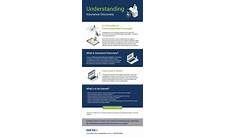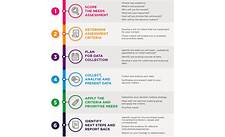What is insurance discovery?
Insurance discovery is the process of identifying healthcare services that are covered by insurance plans that have been missed during a patient’s previous visits to healthcare facilities. As healthcare costs continue to increase, and patients are becoming more responsible for their healthcare expenses, insurance discovery has become a vital component of revenue cycle management for healthcare providers.
One of the primary reasons for the need for insurance discovery is the complexity of medical billing systems. Medical billing systems are often confusing and involve complex coding, numerous procedures, and various insurance coverages. Healthcare providers often do not have time to focus on billing and may miss covered procedures, tests, or services that could drastically reduce patients’ medical bills and increase revenue for providers.
Insurance discovery can also be useful for patients. Patients may not be aware of specific procedures or tests covered by their insurance plans, and they may end up paying costs that their insurance would cover if they were aware of the services’ availability. Insurance discovery can help patients bring down their medical expenses and reduce the financial burden on them.
The insurance discovery process often starts with reviewing patients’ medical histories and insurance claim information from previous healthcare facility visits. Healthcare providers work to understand the specific medical requirements of their patients to identify which insurance plans cover which healthcare services. Specialized software can be used to streamline the process and compare patients’ needs with insurance coverage options more effectively.
Insurance discovery can help identify missed services that can be claimed for compensation from insurance companies. These missed claims lead to healthcare providers leaving significant amounts of revenue on the table. Furthermore, when patients are not aware of specific procedures covered by their insurance, they often face significant financial burdens due to paying for services out of their pockets. With insurance discovery, healthcare providers can help their patients and improve their own revenue cycle management.
Overall, insurance discovery has become a vital component of the healthcare industry. Healthcare providers use this process to ensure patients receive the services that their insurance plan covers, significantly reducing their financial burdens. Insurance discovery also ensures that healthcare providers maximize revenue from insurance claims. As the healthcare sector continues to evolve and insurance plans become increasingly complex, insurance discovery will remain a critical component of revenue cycle management in healthcare facilities.
The Importance of Insurance Discovery
Insurance policies can be complicated to read and understand. With so many options and technical terms, it’s not uncommon for policyholders to overlook critical coverage or pay for insurance they don’t need. This is where insurance discovery comes in – a process designed to ensure that policyholders are getting the most out of their coverage.
Insurance discovery is the practice of reviewing an existing insurance policy to determine if the policyholder has the correct coverage in place or if there are gaps that need to be addressed. It’s an essential part of the insurance process that can help policyholders save money, prevent potential claims denials, and ensure they have coverage when they need it most.
Here are the top reasons why insurance discovery is so important:
1. Minimizing Coverage Gaps
Insurance discovery can help identify coverage gaps that may exist in a policy. For example, a policy may have coverage for a homeowner’s property but not for expensive valuables, like jewelry or fine art. Insurance discovery can help identify these types of gaps and suggest solutions that address them.
2. Avoiding Over-Insurance
Just as it is possible to have coverage gaps, it’s also possible to have coverage you don’t need, known as over-insurance. This can result in paying unnecessary premiums or being under-compensated in the event of a claim. Insurance discovery can help identify if a policyholder is paying for insurance they don’t need and suggest adjustments that can save money.
For example, an elderly couple may have life insurance policies with coverage amounts that are no longer necessary since their children are already financially independent. Insurance discovery can help them adjust their coverage to match their current needs, resulting in savings on insurance premiums.
3. Ensuring Proper Coverage
Insurance policies are complex documents that can be difficult to understand, even for the most experienced policyholders. Insurance discovery can help ensure that a policyholder has the right coverage that meets their unique circumstances.
For example, a business owner may not be aware that their existing general liability coverage doesn’t extend to cyber incidents. Insurance discovery can help them identify this gap and suggest coverage options that can protect their business against cyber threats.
4. Identifying Cost Savings
Another important benefit of insurance discovery is that it can help identify potential cost savings. Insurance discovery can help identify discounts and other cost-reduction strategies, such as adjusting coverage limits, changing deductibles, or bundling policies, that can lower insurance premiums without sacrificing coverage.
For example, a policyholder may not be aware that they can save on their auto insurance premiums by adjusting their coverage limits or increasing their deductibles. Insurance discovery can help identify these opportunities and suggest cost-effective solutions that maintain coverage levels.
5. Protecting Against Claims Denials
Finally, insurance discovery can help prevent claim denials by ensuring that a policyholder has the proper coverage in place. Claim denials can happen when policyholders make errors when purchasing insurance or fail to update their policies as their needs change. Insurance discovery can help protect policyholders against claim denials by ensuring they have the correct coverage in place and that their policies are up to date.
In conclusion, insurance discovery can be a valuable tool for policyholders looking to get the most out of their insurance coverage. By identifying coverage gaps, minimizing over-insurance, ensuring proper coverage, identifying cost savings, and protecting against claims denials, insurance discovery can help policyholders save money and reduce risk.
Insurance Discovery Process

In the insurance industry, the discovery process is the initial step in determining how much coverage the policyholder will need. This process is crucial for insurance agents and providers, as it ensures they accurately price the policy and prevent any issues during claims. Here are the three steps involved in the insurance discovery process:
Step 1: Information Collection

The first step in the insurance discovery process involves information collection about the policyholder. Insurance companies collect data such as personal information, occupation, age, and health information to determine the risk that the individual poses. It is important for the policyholder to provide accurate information for the discovery process to prevent any issues during claims. Some insurance companies also offer online self-assessment tools to help individuals determine their coverage needs. This process can help expedite the discovery process and provide accurate coverage for the policyholder.
Step 2: Coverage Needs Assessment

Once the insurance company collects the required information, they assess the coverage needs of the policyholder. They analyze any risks the policyholder might encounter and the likelihood of losses. This process ensures that the policyholder receives adequate coverage that will protect them in the event of a claim. Several factors such as personal risk profile, financial assets, and expectations will be taken into consideration before recommending a policy. If the coverage needs are complicated or require additional attention, the insurance company may request additional information before settling on a policy.
Step 3: Policy Selection
The final step involves selecting the most appropriate policy for the policyholder. After assessing the coverage needs, the insurance provider will recommend a couple of policies that meet all the needs and provide the policyholder with the necessary level of protection. Insurance companies sometimes offer more than one policy option to the policyholder, allowing them to choose the policy that best fits their requirements. The policyholder can then discuss in detail with the insurance provider to decide on the most suitable policy, considering factors such as cost, coverage limits, and benefits.
In conclusion, the Insurance discovery process is vital to ensure that the policyholder gets the most suitable coverage. The process helps the insurance provider to analyze the risks and offer policies that match the policyholder’s needs. Therefore, accurate information and collaboration between the policyholder and the insurance provider are essential to get the right cover and prevent any issues during claims processes.
Common mistakes in insurance discovery
Insurance discovery is the process of uncovering insurance coverage that may apply to a claim or a lawsuit. This process is important because it can help protect a company from financial loss, as well as help ensure that claims and lawsuits are properly defended. However, there are common mistakes that companies often make when conducting insurance discovery:
1. Failing to conduct insurance discovery early enough
One of the most common mistakes that companies make is waiting too long to begin the insurance discovery process. This can result in a number of problems, including missed deadlines, increased costs, and difficulty in obtaining necessary information. In general, it is important to begin the insurance discovery process as early as possible, ideally before a claim or lawsuit is even filed.
2. Assuming that certain types of insurance do not apply
Another common mistake is assuming that certain types of insurance do not apply to a particular claim or lawsuit. For example, a company may assume that its general liability policy does not apply to a particular product defect claim, when in fact it may provide some coverage. It is important to carefully review all insurance policies to determine which ones may be relevant to a particular claim or lawsuit.
3. Failing to provide adequate notice to insurers
Many insurance policies require the policyholder to provide the insurer with prompt notice of a potential claim or lawsuit. Failure to provide this notice can result in the loss of coverage. It is important to carefully review all insurance policies and provide prompt notice to all relevant insurers.
4. Failing to follow proper procedures for handling insurance claims
One of the most important aspects of insurance discovery is knowing how to properly handle insurance claims. This includes following proper procedures for reporting claims, working with insurance adjusters, and providing necessary documentation. Failure to follow proper procedures can result in delayed or denied coverage.
The first step in handling an insurance claim is to report the claim to the insurance carrier as soon as possible. This involves providing information about the incident that gave rise to the claim, as well as any available supporting documentation, such as police reports or medical records.
Once the claim has been reported, the insurance carrier will assign an adjuster to investigate the claim and determine whether coverage is available. It is important to work closely with the adjuster and provide any additional information that may be necessary to support the claim.
If the claim is covered, the insurance carrier will typically issue a payment or engage in negotiations to settle the claim. It is important to carefully review any proposed settlement agreements and ensure that they provide adequate compensation for the damages suffered.
Finally, it is important to keep careful records of all insurance claims and related documentation. This can help ensure that claims are properly investigated, defended, and settled, and can also provide valuable evidence in the event of future claims or lawsuits.
Conclusion
In conclusion, insurance discovery is an important process that can help protect companies from financial loss. However, it is important to avoid common mistakes, such as failing to conduct insurance discovery early enough, assuming that certain types of insurance do not apply, failing to provide adequate notice to insurers, and failing to follow proper procedures for handling insurance claims. By following best practices and working closely with insurance carriers, companies can effectively manage their insurance claims and minimize their exposure to risk.
Benefits of effective insurance discovery
Insurance discovery is the process of finding out whether a patient has insurance coverage and what their policies include. This is an important task in healthcare facilities because it reduces the risk of a facility not getting paid for the services they provide. Effective insurance discovery can lead to several benefits, including:
1. Cost reduction for patients
Effective insurance discovery can help reduce costs for patients. By verifying their insurance coverage before their visit, healthcare providers can ensure that the patient receives only necessary tests and treatments that are covered by their policies. This can help avoid unnecessary expenses and reduce out-of-pocket costs for patients. Insurance discovery can also help find insurance policies that offer lower co-payments and deductibles, which would reduce the amount patients have to pay for healthcare services.
2. More timely payments to healthcare providers
Effective insurance discovery can help healthcare providers receive timely and accurate payments for the services they provide. By verifying a patient’s insurance coverage before their visit, healthcare providers can ensure they are billing the correct insurance company for the right services. This can help avoid payment rejections and delays, allowing providers to receive payments more quickly. Timely payments can help healthcare facilities maintain cash flow, hire quality staff, and purchase equipment necessary to provide top-notch care to patients.
3. Better patient satisfaction
Patients want to have a good experience when they visit a healthcare facility. Waiting for a long time to receive care or being billed for unexpected expenses are frustrating and can lead to poor patient satisfaction. Effective insurance discovery can help reduce wait times and keep costs predictable for patients. By doing so, healthcare providers can boost patient satisfaction and build long-lasting relationships with patients. Patients who are satisfied with their care and experience are more likely to return to the same facility for future medical care needs and to recommend it to others.
4. Increased revenue for healthcare providers
Effective insurance discovery can help healthcare providers increase their revenue. By identifying and verifying a patient’s insurance coverage before their appointment, healthcare providers can avoid denied claims and unpaid bills. This can help ensure that healthcare providers receive the full payment for the services they provide, ultimately leading to increased revenue.
5. Higher productivity and efficiency
Effective insurance discovery can also lead to higher productivity and efficiency in healthcare facilities. By verifying a patient’s insurance before their visit, healthcare providers can pre-register the patient and streamline registration and check-in processes. This can reduce wait times for patients and free up staff to focus on more critical tasks. Insurance discovery can also reduce the time and effort healthcare providers spend on back-end billing and claims management, which can ultimately lead to a more productive and efficient workforce.
Overall, effective insurance discovery is a crucial component of the healthcare system. It can reduce costs for patients, increase revenue for healthcare providers, and improve patient satisfaction. Additionally, it can lead to higher productivity and efficiency in healthcare facilities. With these benefits, it is important for healthcare providers to prioritize insurance discovery and ensure that it is done in an accurate and timely manner.

